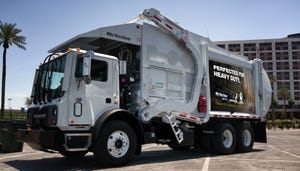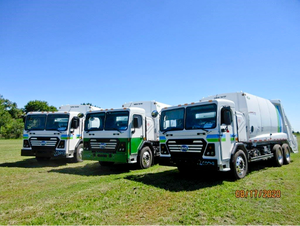Law seeks to boost federal procurement of recycled goods
July 23, 2010
Yesterday, U.S. Sens. Tom Carper, D-Del., and Olympia Snowe, R-Maine, introduced legislation to encourage the use of recycled goods within the federal government. The bill, titled “Federal Procurement of Recycled Materials to Reduce Greenhouse Gas Emissions,” as outlined in a press release from Sen. Carper’s office, defines reasonable cost for the federal procurement of recycled materials.
Currently, federal agencies are encouraged to opt for reasonably priced recycled products, but ambiguity surrounding what constitutes a reasonable price means recycled goods are often ignored. As the federal government is the largest U.S. purchaser of goods, it is hoped that its embrace of recycled products will spur recycling markets.
The legislation defines reasonable cost for the federal procurement of recycled materials as no more than 110 percent of the price of the highest-ranked competing bid for goods with at least 25 percent recycled content, thus clarifying that a 10 percent premium for goods with at least 25 percent recycled content is reasonable.
“This bill not only encourages our Federal agencies to use recycled goods, it also sends a market signal that will help grow recycling within our larger economy,” said Sen. Carper, who co-chairs the Senate Recycling Caucus with Sen. Snowe. “Just as was the case in the 1990s when the Federal government began purchasing recycled paper, the increased demand for the product spurred competition and drove down prices, making it more affordable for all consumers to purchase recycled paper. Similarly, this bill will help create an enhanced market demand for recycled goods throughout our economy, and at the same time will reduce greenhouse gas emissions, save us energy, reduce our dependence on foreign oil, and create hundreds of thousands of new jobs in the United States.”
You May Also Like


